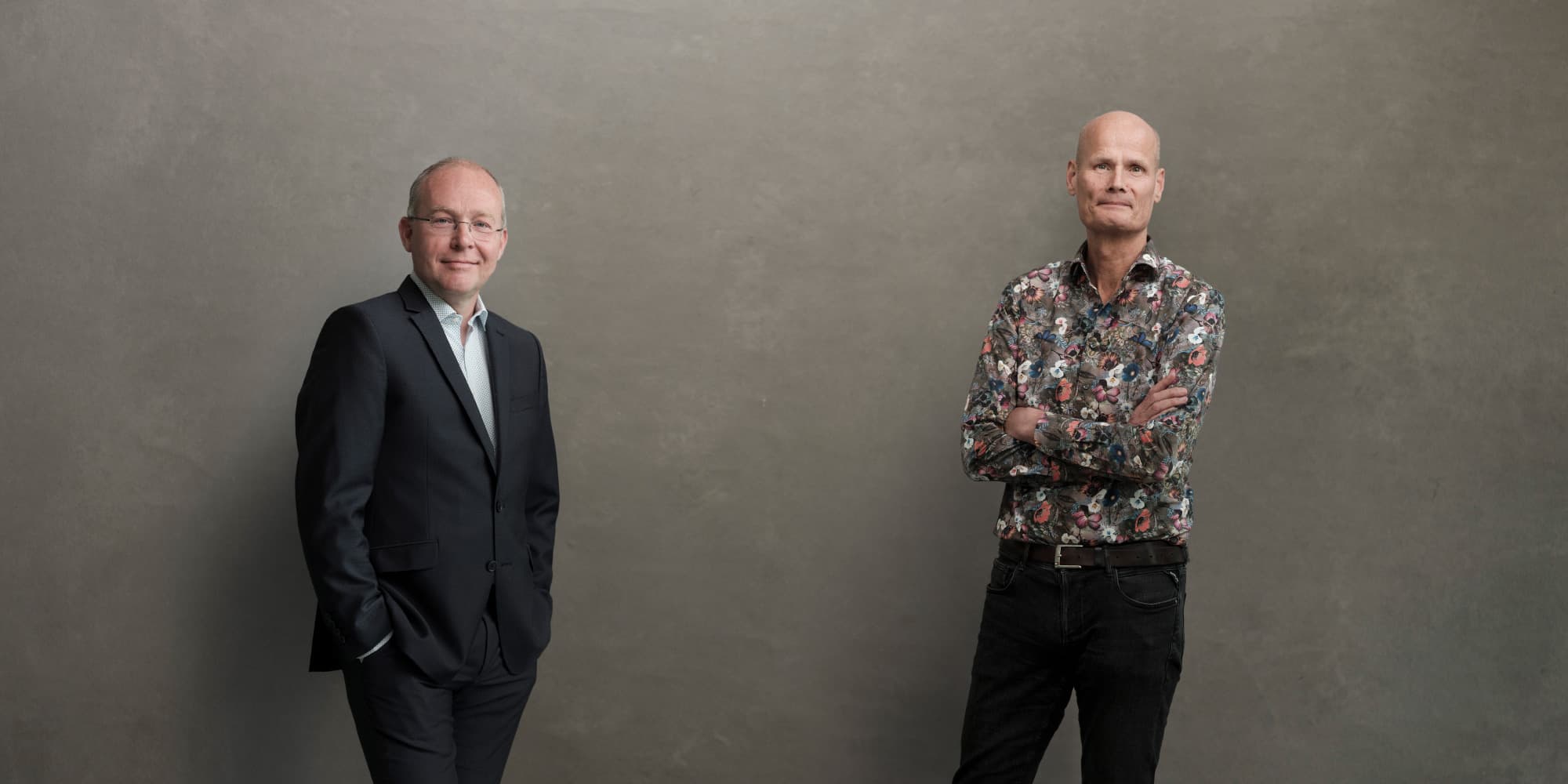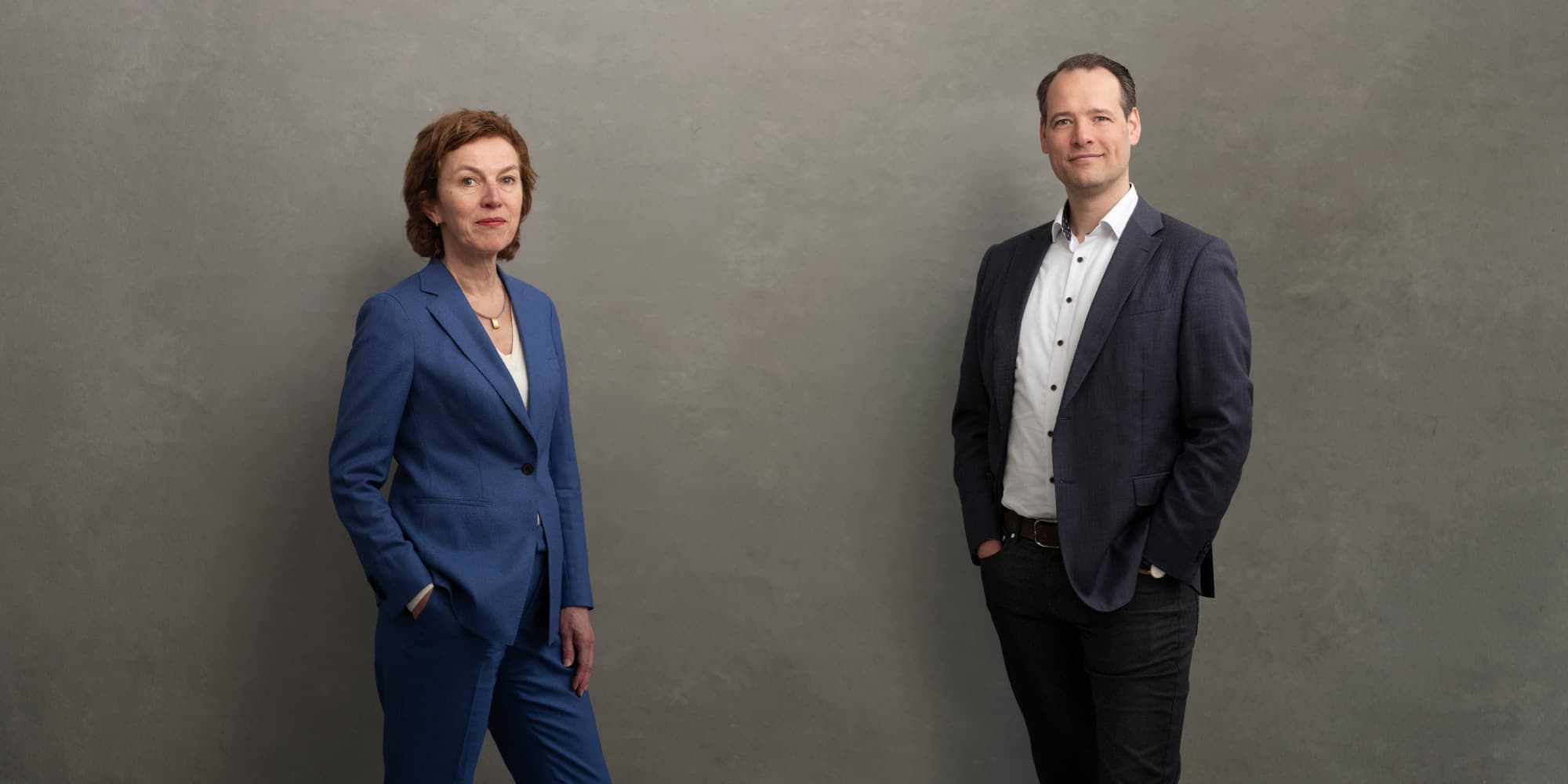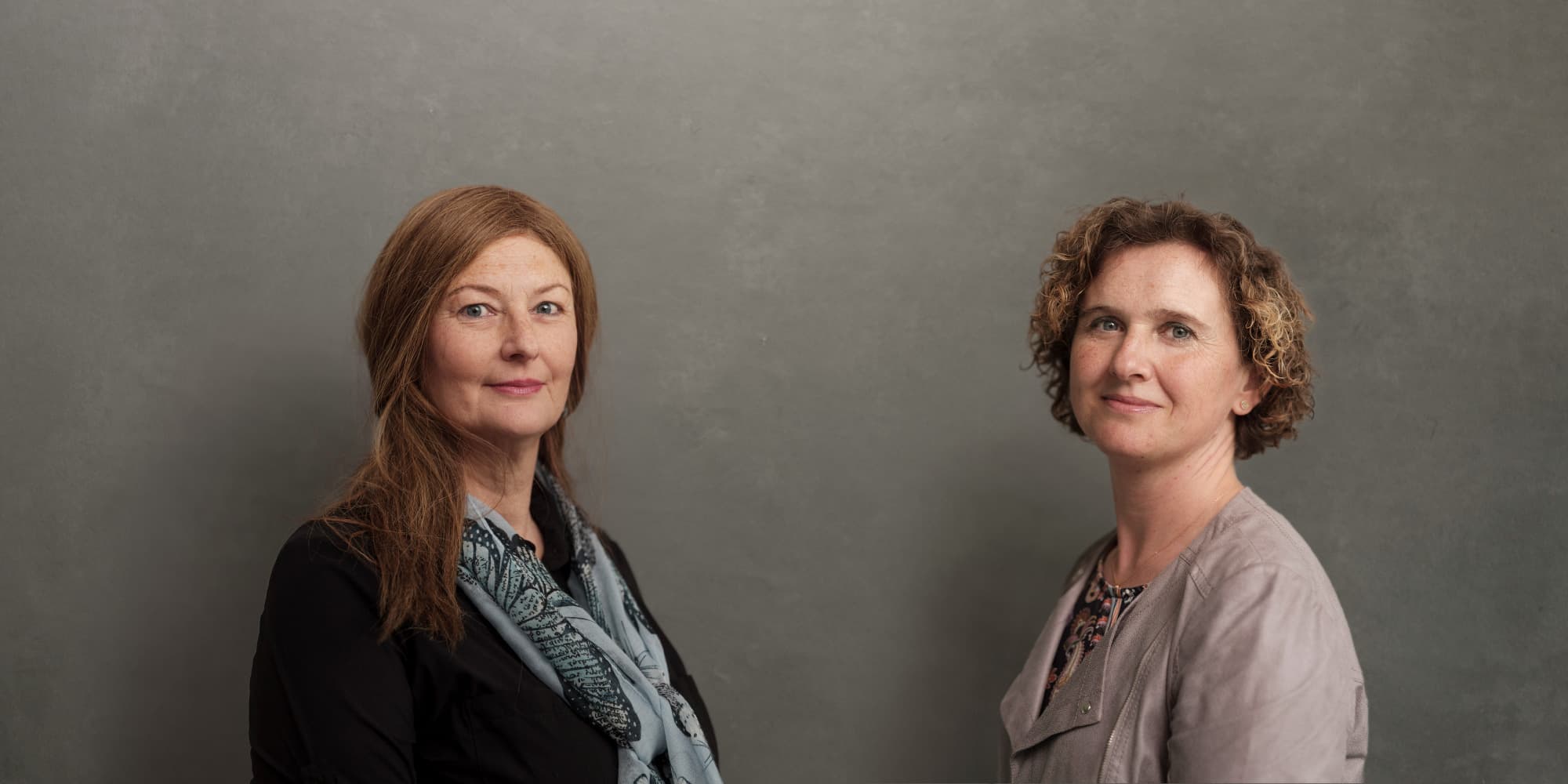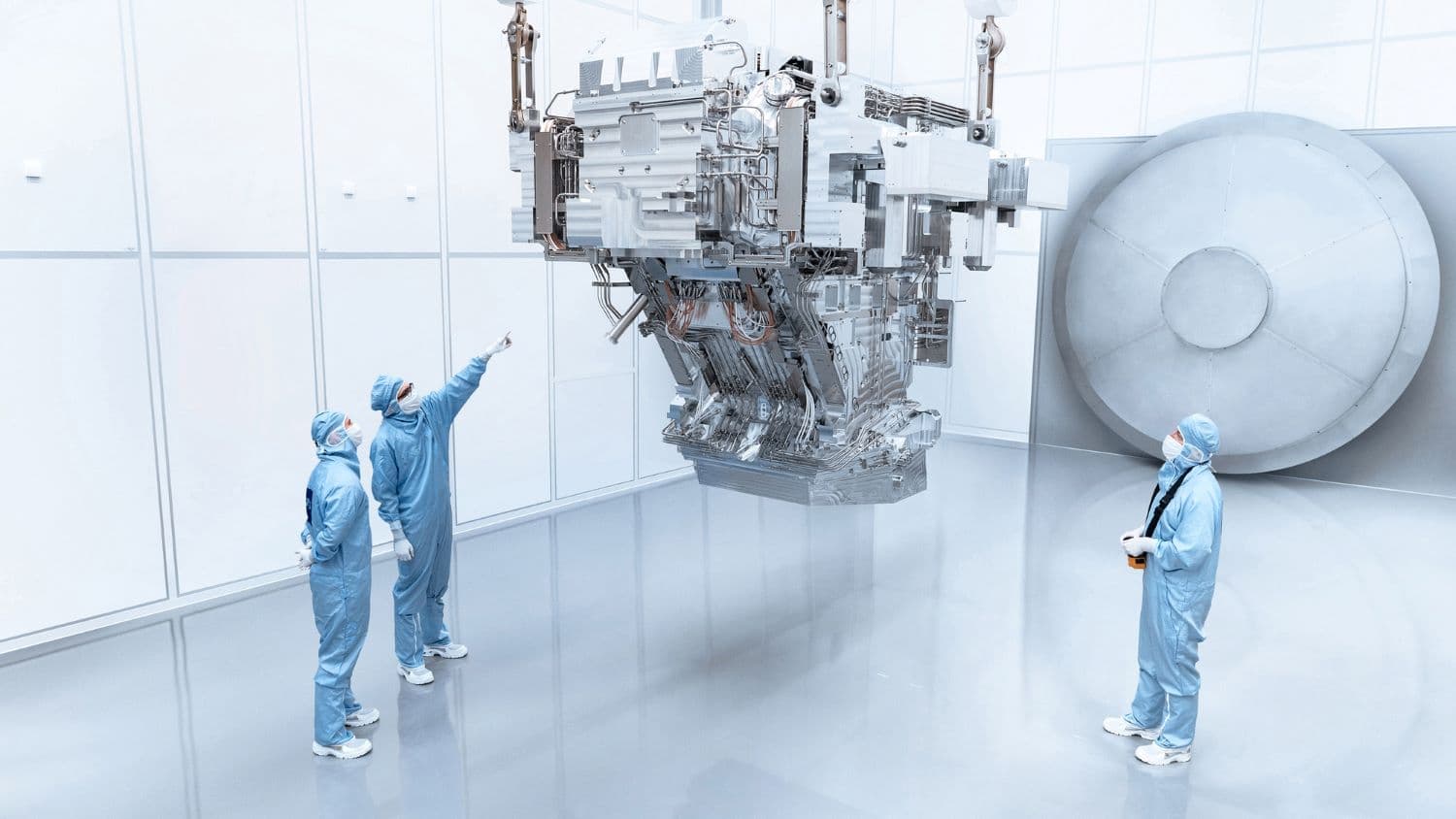In this series of Moonshot interviews, imec Netherlands talks to experts about the impact of nanotechnology on our future society. In this third episode, Nico Van Meeteren, General Director of the Top Sector Life Sciences & Health, and Sywert Brongersma, Director Strategic Partnerships at imec the Netherlands within Holst Centre, discuss the opportunities for technology in preventive care.
Vital citizens in a healthy economy. That is the motto of the Top Sector Life Sciences & Health, one of the ten Top Sectors designated by the Dutch Ministry of Economic Affairs to make a substantial contribution to the four social themes of the (resigned) Rutte III Cabinet. To realize the five missions of the Ministry of Health, Welfare and Sport for the social theme Health and Care, the Top Sector is building on the strengths of Dutch health and preventive care. And there are plenty, according to Nico Van Meeteren: “If you calculate that we as humans have been around for about 120,000 years and that we have succeeded in almost doubling our life expectancy in the last 150 years, then that is downright impressive.” But at the same time he stresses that medical care has only had a limited influence on this. “Of those 40 years of life gained, you can attribute 90 percent to education, clean drinking water, infrastructure, but above all to poverty reduction. In fact, we have unconsciously become proficient in preventive care,” Nico concludes. “Of course we can further improve healthcare, but the potential there is much smaller. With preventive care we can still gain another 10, 15, maybe even 20 healthy years.”
“We are at a tipping point”
Nico’s conversation partner Sywert Brongersma, who is responsible for strategic partnerships at imec within Holst Center, shares that view. From his experience with vitality projects for the business community, Sywert also sees an important supporting role for nanotechnology. “If you look at the past 40-50 years, technology has mainly made us more and more inactive. But we are at a tipping point. Thanks in part to artificial intelligence, the Internet of Things and data science, technology is now so advanced that it can understand your situation and context.” Nanotechnology will ensure that people will soon be imperceptibly healthier and more vital, is Sywert's conviction. “It becomes a natural part of our daily lives.” Nico agrees: “Don't forget that a lot of technology already invisibly, unconsciously invades our lives and contributes to our health. I believe that nanotechnology can help us to make a big leap forward, if more people start to see the enormous added value of this technology.”
“I believe that nanotechnology can help us to make a big leap forward, if more people start to see the enormous added value of this technology”
Nico Van Meeteren
Start in the workplace
A logical starting point for using technology to increase vitality is the workplace. Because which employer doesn’t want fit, productive employees, without too much stress or absenteeism? Sywert thinks the potential is enormous. “The credit crisis has triggered the entire development of energy efficiency. Yet, on average, energy accounts for only a few percent of operating costs, compared to 90 percent for staff. This means investing in healthy employees could yield much more.” Sywert believes that reach and scalability are the major advantages of nanotechnology. “With courses and coaching on healthy behavior you only reach a small part of your staff, and usually only the people who were already in to this lifestyle. But with smart offices and workplaces everyone benefits.” Unknown makes unloved. That is why imec has joined forces with its FITT-partners, among others, in the Workplace Vitality Hub: a promising preview of the workplace of the future located on High Tech Campus Eindhoven (see text box). According to Sywert, the current corona crisis demonstrates that vitality is rightly an important theme, among other things to make us more resilient against these types of viruses. But not only that: “Employers will have to facilitate working from home, but they also have to entice their employees to return to the office again. At least partly, because this is more convenient and effective for certain tasks. Technology will play an important role in this. How to better connect the office with home will be a challenge, because completely different technology companies are active in both domains.”
“Employers will have to facilitate working from home, but they also have to entice their employees to return to the office again”
Sywert Brongersma
“Autonomy and trust are key”
When it comes to employee data, especially in relation to health, you automatically reach the sensitive topic of privacy. “The employer-employee relationship is complicated in that area”, Sywert agrees, “but if you look at health insurers then employees are already being steered towards desired behavior. Ultimately, I expect that opportunities will arise in the collaboration between employees and health insurers, with employers in a facilitating role.” Nico sees increased opportunities for safe data sharing: “The Internet of Things is slowly being replaced by the 'Internet of FAIR data and services' (a set of principles to better organize the use of data for health and care, ed.). This means that we are more and more able and willing to manage our own data, to determine who we allow to use it and who not. It’s much more about autonomy.” Sywert: “That's right, autonomy and trust in our solutions are key. At imec we consider these aspects, in addition to data flow security, as the biggest challenges for the transition we envision.”
Health gap is growing
Preventive care in the workplace is great, but how do you ultimately ensure that everyone benefits and society as a whole becomes more vital? Nico observes: “If you look at health inequality, there is indeed still a significant and growing gap. On average a person living in poverty has a six to seven years shorter life expectancy. That’s a big challenge.” Sywert: “Nevertheless, the workplace is a logical place to start. You need stakeholders such as employers and health insurers who immediately understand the importance and potential of technology. In addition, employees are more likely to be tech savvy. Ideal for learning from, so that other groups in society can also benefit from this later on.” Nico adds: “I see that as an organic process. Technology will continue to evolve. Ultimately, I see nanotechnology as a welcome Trojan horse, improving society unnoticed. I have high hopes for that.”
“Learn with our grandparents”
In addition to technological innovation, Nico believes that there is a great need for social innovation in order to be able to take next steps in preventive care and vitality. “I think there’s quite some room for improvement in that respect”, Nico sounds concerned. “I think education is a good example. Schools used to be the engine of progress and a connecting factor in society. How can education take up that role and place again, now and in the future? Can we give such a place the right social, physical and mental dynamics? I also strongly believe in the benefits of learning, or rather developing, in a mix of ages and contexts.” According to Nico, this is related to another major challenge in our current society, namely that we must learn to deal better with the elderly. He sees this as an opportunity: “What could be more fun for young grandchildren than to learn with grandparents? Ergo: can schools once again become the engine of prosperity and life expectancy, just like in the past? And how can technology contribute to this as well?” Sywert: “Our challenge is to ensure that technology becomes a commodity, that it’s an intuitive and accepted part of your daily life. It’s interesting to see how this can also enhance the interaction between students and the elderly, which does not have to be very different from "on-the-job-learning" with a remote expert. And then substantiate how we can demonstrably add quality to our lives. Technology certainly does not solve everything, but we can play an important supporting role.”
Welcome to the workplace of the future
In order to make the transition from science to the workplace, imec at Holst Centre gains valuable experiences with smart technologies, data and Artificial Intelligence in the Workplace Vitality Hub on the High Tech Campus Eindhoven. Fontys, TNO, Eindhoven University of Technology and imec are working together with TWICE and HTCE in this living lab. The aim is to create new applications for a smart working environment with established companies and start-ups. Sywert: “Innovations include lighting that automatically adapts to the moment and the situation, sound scaping that helps you concentrate better, and furniture that automatically adapts to your posture, or an office chair that teaches you to sit properly. But technology can take us even further.
For example, by remotely measuring someone's breathing and heart rhythm. And we can see the functionalities of wearables being integrated completely invisibly and intuitively into our working environment in the future. The hybrid electronics available within Holst Centre, where chip technology and free form electronics come together, are very suitable for this. In the office, in a production environment, or at home. Together with its partners and the business community, imec is working on new solutions to work healthily and vitally in a post-COVID society, where people instead of bricks are at the heart of innovation.

In deze serie Moonshot interviews gaat imec Nederland in gesprek met experts over de impact van nanotechnologie op onze toekomstige maatschappij. In deze derde aflevering bespreken Nico Van Meeteren, Algemeen Directeur van het Bureau van de Topsector Life Sciences & Health, en Sywert Brongersma, Director Strategic Partnerships bij imec the Netherlands binnen Holst Centre, de kansen voor technologie in de preventieve zorg.
Vitale burgers in een gezonde economie. Dat is het motto van de Topsector Life Sciences & Health, één van de tien Topsectoren die door het Ministerie van Economische Zaken is aangewezen om substantieel bij te dragen aan de vier maatschappelijke thema’s van het (demissionaire) Kabinet Rutte III. Om de vijf VWS-missies voor het Maatschappelijk Thema Gezondheid en Zorg te realiseren bouwt de Topsector voort op de sterke punten van de gezondheid, preventie en zorg. En die zijn er volop, volgens Nico Van Meeteren: “Als je rekent dat we als mensen zo’n 120.000 jaar op deze aarde rondlopen en dat we er in de laatste 150 jaar in geslaagd zijn om onze levensverwachting bijna te verdubbelen, dan is dat ronduit indrukwekkend.” Maar tegelijkertijd haast hij zich te zeggen dat de medische zorg hier slechts voor een beperkt deel invloed op heeft gehad. “Van die 40 gewonnen levensjaren kun je 90 procent toeschrijven aan scholing, schoon drinkwater, infrastructuur, maar vooral ook aan armoedebestrijding. Eigenlijk zijn we onbewust bekwaam geworden in preventie”, concludeert Nico. “Natuurlijk kan de zorg zelf ook nog verder verbeteren, maar de winstpotentie daar is kleiner. Met nog betere preventie kun je zomaar nog 10, 15, misschien zelfs wel 20 gezonde levensjaren toevoegen.”
‘Zitten op technologie kantelpunt’
Nico’s gesprekspartner Sywert Brongersma, bij imec binnen Holst Centre verantwoordelijk voor strategische partnerships, deelt die mening. Vanuit zijn ervaring met vitaliteitsprojecten voor het bedrijfsleven ziet Sywert bovendien een belangrijke ondersteunende rol weggelegd voor nanotechnologie. “Als je kijkt naar de afgelopen 40-50 jaar dan heeft technologie ons voornamelijk steeds inactiever gemaakt. Maar we bevinden ons op een kantelpunt. Mede dankzij kunstmatige intelligentie, Internet of Things en data science is technologie nu zo ver ontwikkeld dat die jouw situatie en context kan begrijpen.”
Nanotechnologie gaat er voor zorgen dat mensen straks ongemerkt gezonder en vitaler worden, is Sywerts overtuiging. “Het wordt een natuurlijk onderdeel van ons dagelijks leven.” Nico is het met hem eens: “Vergeet niet dat heel veel technologie nu al onzichtbaar, onbewust ons leven binnendringt en bijdraagt aan onze gezondheid. Ik denk dat nanotechnologie nog een hele sprong voorwaarts kan helpen maken als meer mensen gaan inzien welke enorme toegevoegde waarde deze technologie kan brengen.”
‘Ik denk dat nanotechnologie nog een hele sprong voorwaarts kan helpen maken als meer mensen gaan inzien welke enorme toegevoegde waarde deze technologie kan brengen’
Nico Van Meeteren
Beginnen op de werkvloer
Een logisch vertrekpunt om technologie in te zetten voor vitaliteit is de werkvloer. Want welke werkgever wil er nou geen fitte, productieve werknemers, zonder teveel stress of ziekteverzuim? De potentie is enorm denkt Sywert. “De kredietcrisis heeft de hele ontwikkeling van energie-efficiëntie in gang gezet. Toch vormt energie gemiddeld maar een paar procent van de bedrijfskosten, tegenover 90 procent voor personeel. Dus investeren in gezonde medewerkers zou weleens veel meer kunnen opleveren.” Het bereik en de schaalbaarheid ziet hij als dé grote voordelen van nanotechnologie. “Met cursussen en coaching over gezond gedrag bereik je maar een klein deel van je personeel, en meestal alleen de mensen die er toch al mee bezig waren. Met slimme kantoren en werkplekken profiteert iedereen.” Onbekend maakt onbemind. Daarom werkt imec samen met onder andere de FITT-partners aan de Workplace Vitality Hub: een fysieke locatie op High Tech Campus Eindhoven die ons een veelbelovende vooruitblik op de werkplek van de toekomst biedt (zie kader).
De huidige coronacrisis toont volgens Sywert aan dat vitaliteit terecht een belangrijk thema is, onder meer om ons weerbaarder te maken tegen dit soort virussen. Maar dat niet alleen: “Werkgevers zullen thuiswerken moeten faciliteren, maar ook hun medewerkers opnieuw moeten verleiden om naar kantoor terug te keren. In elk geval deels, omdat dit voor bepaalde werkzaamheden handiger en effectiever is. Technologie gaat daar een belangrijke rol in spelen. Een uitdaging wordt nog wel hoe je kantoor beter met thuis verbindt, omdat in beide domeinen compleet andere technologiebedrijven actief zijn.”
‘Werkgevers zullen thuiswerken moeten faciliteren, maar ook hun medewerkers opnieuw moeten verleiden om naar kantoor terug te keren. Technologie gaat daar een belangrijke rol in spelen’
Sywert Brongersma
‘Draait om autonomie en vertrouwen’
Als je het over data van medewerkers hebt, zeker in relatie tot gezondheid, dan kom je al snel uit bij het gevoelige onderwerp privacy. “De relatie werkgever-werknemer ligt op dat vlak ingewikkeld”, beaamt Sywert, “maar als je kijkt naar zorgverzekeraars en werknemers, dan wordt er nu ook al gestuurd op gewenst gedrag. Uiteindelijk verwacht ik dat er mogelijkheden ontstaan in de samenwerking tussen werknemer-zorgverzekeraar, met de werkgever in een faciliterende rol.” Nico ziet kansen voor veilig data delen toenemen: “Internet of Things wordt langzaam ingewisseld voor het ‘Internet of FAIR data en services’ (een set principes om het gebruik van data voor gezondheid en zorg beter te organiseren, red.). Daarmee zijn we steeds beter in staat om onze eigen data te beheren, te bepalen wie daar wel en niet iets mee mag doen. Het is veel meer een kwestie van autonomie.” Sywert: “Klopt, autonomie, en gebruikers het vertrouwen geven in de oplossing, dat zien we bij imec, naast het afdichten van de datastromen, als een grote uitdaging die essentieel is voor de transitie die we voor ogen hebben.”
Gezondheidskloof groeit
Preventie op de werkvloer is mooi, maar hoe zorg je er uiteindelijk voor dat iedereen meeprofiteert en de samenleving als geheel vitaler wordt? Nico constateert: “Als je kijkt naar de gezondheidsverschillen tussen de laagste en hoogste sociaaleconomische groepen dan zijn daar inderdaad nog steeds forse en zelfs groeiende verschillen. Iemand die in armoede leeft, heeft gemiddeld een zes tot zeven jaar kortere levensverwachting. Daar ligt een grote uitdaging.” Sywert: “Toch is de werkvloer een logische plek om te beginnen. Je hebt stakeholders zoals werkgevers en zorgverzekeraars nodig die direct het belang en potentieel van technologie inzien. Daarnaast zijn werknemers vaker tech savvy. Ideaal om van te leren, zodat later ook andere groepen in de samenleving hiervan kunnen profiteren.” Nico vult hem aan: “Ik zie dat als een organisch proces. Technologie gaat wel door. Uiteindelijk zie ik nanotechnologie als welkom trojan horse de samenleving ongemerkt verbeteren. Ik heb daar hooggespannen verwachtingen van.”
‘Samen leren met opa en oma’
Naast technologische innovatie gelooft Nico dat er grote behoefte is aan sociale innovatie om weer stappen te kunnen maken in preventie en vitaliteit. “Ik vind dat we op dat vlak suboptimaal in de wedstrijd zitten”, klinkt Nico bezorgd. “Een goed voorbeeld vind ik het onderwijs. Scholen waren dé motor van progressie en een verbindende factor in de samenleving. Hoe kan het onderwijs die rol en plek ook nu en in de toekomst weer innemen? Kunnen we zo’n plek de juiste sociale, fysieke en mentale dynamiek meegeven? Ook door te leren, of liever te ontwikkelen in een mix van leeftijden en contexten is mijn overtuiging.” Dat hangt volgens Nico samen met een andere grote uitdaging in onze huidige maatschappij, namelijk dat we beter moeten leren omgaan met ouderen. Hij ziet dit als kans: “Wat is er nou leuker voor jonge kleinkinderen om met opa en oma te leren? Ergo: kunnen scholen weer net als vroeger de motor van welvaart en levensverwachting worden? En hoe kan technologie ook hier een bijdrage aan leveren?” Sywert: “Onze uitdaging is om er voor te zorgen dat technologie een commodity wordt, dat het een intuïtief en geaccepteerd onderdeel is van je dagelijkse leven. Het is interessant om te kijken hoe dat ook de interactie tussen scholieren en ouderen kan versterken, wat niet zo heel anders hoeft te zijn dan bij ‘on-the-job-learning’ met een expert op afstand. En vervolgens onderbouwen hoe we daar aantoonbaar kwaliteit mee kunnen toevoegen aan ons leven. Technologie lost zeker niet alles op, maar we kunnen wel een belangrijke ondersteunende rol pakken.”
Welkom op de werkplek van de toekomst
Om de vertaalslag van wetenschap naar de werkvloer te maken willen we binnenkort de eerste ervaringen met slimme technologieën, data en Artificial Intelligence op de werkvloer opdoen in de Workplace Vitality Hub op de High Tech Campus Eindhoven. Aan de realisatie van deze proeftuin werken Fontys, imec, TNO en TU Eindhoven samen met TWICE en HTCE. Het doel is om met gevestigde bedrijven en start-ups nieuwe toepassingen te creëren voor een slimme werkomgeving. Sywert: “Verlichting die zich automatisch aan het moment en de situatie aanpast. Sound scaping die je beter helpt concentreren. Meubilair dat zich automatisch aan jouw postuur aanpast. Een bureaustoel die jou goed leert zitten. Maar het gaat ook verder.
Zo kun je nu al op afstand iemands ademhaling en hartritme meten, en zien we hoe de functionaliteit van wearables in de toekomst, volledig onzichtbaar en intuïtief in onze werkomgeving kan worden geïntegreerd. Hiervoor is de binnen Holst Centre beschikbare hybride elektronica, waar chiptechnologie en vrije vorm elektronica samenkomen, zeer geschikt. Op kantoor, in een productie-omgeving, of thuis. Samen met haar partners en het bedrijfsleven werkt imec aan nieuwe mogelijkheden om gezond en vitaal te werken in een post-COVID samenleving, waarbij altijd de mens centraal staat en niet de bakstenen omgeving.

Over Nico Van Meeteren
Prof. dr. Nico van Meeteren is Algemeen Directeur van het Bureau van de Topsector Life Sciences & Health (LSH) in Den Haag. LSH, dat ook onder de naam Health Holland opereert, coördineert de uitvoering van de Kennis- en innovatieagenda van de Maatschappelijke Uitdaging Gezondheid en Zorg van dit kabinet. Naast Algemeen Directeur is Van Meeteren hoogleraar Perioperatieve gezondheid aan het Erasmus MC in Rotterdam. Tevens is Van Meeteren Bestuursvoorzitter van de Stichting Topcare, die bijdraagt aan excellente langdurige intramurale zorg en behandeling.

Over Sywert Brongersma
Dr. Ir. Sywert Brongersma studeerde Toegepaste Natuurkunde aan de TU Eindhoven en behaalde zijn PHD aan de VU in Amsterdam. Na zijn postdoc aan de universiteit van Western Ontario is hij in 1998 als hoofdwetenschapper gaan werken bij imec’s Advanced Silicon Processing division. In 2006 maakte hij de overstap naar imec at Holst Centre om een onderzoeksgroep op te zetten voor chemische sensoren voor draadloze systeemoplossingen. Op dit moment is Brongersma als Director Strategic Partnerships verantwoordelijk voor Europese en regionale publieke financiering en werkt hij aan het opzetten van nieuwe samenwerkingen.

Prof. dr. Nico van Meeteren is General Director of the Top Sector Life Sciences & Health (LSH) in The Hague. LSH, which also operates under the name Health Holland, coordinates the implementation of the Knowledge and Innovation Agenda of the Social Challenge Health and Care of this cabinet. In addition to General Manager, Van Meeteren is professor of Perioperative Health at Erasmus MC in Rotterdam. Van Meeteren is also Chairman of the Board of the Topcare Foundation, which contributes to excellent long-term inpatient care and treatment.

Dr. Eng. Sywert Brongersma studied Applied Physics at Eindhoven University of Technology and obtained his PhD at VU University in Amsterdam. After his postdoc at the University of Western Ontario, he joined imec's Advanced Silicon Processing division in 1998 as chief scientist. In 2006 he moved to imec within Holst Center to set up a research group for chemical sensors for wireless system solutions. Currently, as Director Strategic Partnerships, Brongersma is responsible for European and regional public funding and is working on setting up new partnerships.
Published on:
20 September 2021












